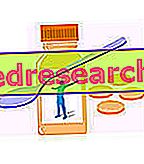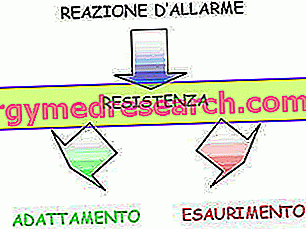BISOLVON TOSSE ® is a drug based on Dextromethorphan bromidhydrate
THERAPEUTIC GROUP: Cough sedatives
IndicationsAction mechanismStudies and clinical effectiveness Usage and dosage instructionsWarnings Pregnancy and lactationInteractionsContraindicationsUndesirable effects
Indications BISOLVON TOSSE ® Dextromethorphan
BISOLVON TOSSE ® is used in the symptomatic treatment of cough associated both with infectious diseases of the upper respiratory tract and with allergies.
Mechanism of action BISOLVON TOSSE ® Dextromethorphan
The important therapeutic action of BISOLVON TOSSE ®, which today makes it one of the most widely used over-the-counter drugs in the course of upper respiratory tract diseases associated with coughing, is due to its active principle: dextromethorphan.
Chemically obtained starting from morphine, it loses its typical opiate characteristics like the impressive analgesic activity, while maintaining a modest sedative action, responsible for the therapeutic activity of the drug.
In other words, the dextromethorphan, taken rapidly, is rapidly and effectively absorbed by the gastrointestinal mucosa, metabolised to the liver level and put back into the circulation, through which it reaches the central nervous system.
It is at this level that the dextrometrophane acts, reducing the degree of activation of the neurons of the cough center, essentially increasing the local content of Serotonin.
At the end of the above biological activity, the active principle, further metabolized by the liver into inactive catabolites, is eliminated mainly through the urine.
Studies carried out and clinical efficacy
DESTROMETORPHAN IN THE COUGH OF SMOKING
Br J Clin Pharmacol. 2008 May; 65 (5): 737-41. doi: 10.1111 / j.1365-2125.2008.03115.x. Epub 2008 Feb 15.
Very interesting work that demonstrates how dextromethorphan can control the cough reflex in healthy and smoking patients, reducing the high tussive activity typical of these individuals.
DESTROMETORPHAN IN RECOVERY FROM DRUG ADDICTION
J Res Med Sci. 2011 Oct; 16 (10): 1354-60.
Study demonstrating that dextromethorphan may be useful in reducing methadone doses in patients being treated for opioid dependence and drugs.
DESTROMETORPHANES WITH HIGH DOSAGE AND CENTRAL EFFECTS
Drug Alcohol Depend. 2013 Mar 1; 128 (3): 206-13.
Work that demonstrates how the abuse of dextromethorphan can induce significant alterations in cognitive and procedural abilities, seriously compromising the patient's ability.
Method of use and dosage
BISOLVON TOSSE ®
2mg syrup of dextromethorphan bromidhydrate per ml of product.
Generally in adults it is recommended to take 1-2 scoops for 3-4 times a day, equal on average to 60 - 80 mg of Dextromethorphan.
In children, halved doses are however sufficient to guarantee an appreciable therapeutic effect.
Therapy should not exceed 5-7 days without the supervision of your doctor.
Warnings BISOLVON TOSSE ® Dextromethorphan
Treatment with BISOLVON TOSSE ®, although it is generally free of serious side effects, should be supervised by a doctor due to the presence of an active ingredient capable of determining addiction.
BISOLVON TOSSE ® should generally be administered with great caution in patients suffering from liver, kidney and respiratory diseases or contextually subjected to drug therapy with antidepressants.
BISOLVON TOSSE ® contains:
- Maltitol, therefore its use is contraindicated in patients suffering from saccharase enzyme deficiency, fructose intolerance and glucose-galactose malabsorption.
- Parahydroxybenzoates, excipients with a strong allergenic power.
It is advisable to keep the medicine out of the reach of children.
Dextromethorphan could cause drowsiness, making it dangerous to drive vehicles or use machinery.
PREGNANCY AND BREASTFEEDING
The use of BISOLVON TOSSE ® is generally contraindicated during pregnancy and in the subsequent period of breastfeeding, given the absence of studies able to characterize the safety profile of Dextromethorphan for the health of the fetus and infant.
However, if the use of this drug is strictly necessary, it should be done under strict medical supervision.
Interactions
The use of BISOLVON TOSSE ® is contraindicated in patients treated with antidepressants monoamine oxidase inhibitors, serotonin reuptake inhibitors, tricyclic antidepressants and inhibitors or inducers of cytochromial enzymes, up to 2 weeks after therapy suspension.
It is recommended not to drink alcohol during Dextromethorphan therapy.
Contraindications BISOLVON TOSSE ® Dextromethorphan
BISOLVON TOSSE ® is contraindicated in patients who are hypersensitive to the active ingredient or to one of its excipients, in patients suffering from liver and kidney diseases, and in patients with respiratory diseases of significant clinical importance.
The use of dextromethorphan is also contraindicated during and after 2 weeks of antidepressant therapy.
Undesirable effects - Side effects
Nausea, abdominal pain, dizziness and drowsiness are the most commonly observed side effects during Dextromethorphan therapy.
Fortunately, the appearance of adverse neurological or cutaneous reactions is rarer, due respectively to a serotonin syndrome or hypersensitivity to the active ingredient.
Note
BISOLVON TOSSE ® is a non-prescription drug.



